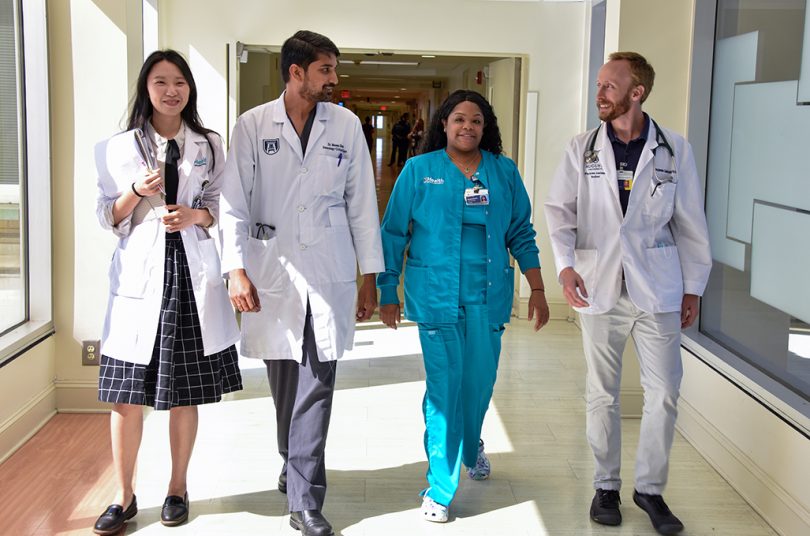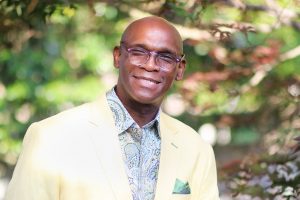AU Health has recently formed a Diversity, Equity, and Inclusion (DEI) Committee to discuss ways that the health system can improve in those areas.
In May 2020, the national conversation surrounding the George Floyd murder in Minneapolis sparked conversations regarding race in America. These conversations spoke to people everywhere, including staff of – and the community surrounding – AU Health. Out of an abundance of concern, AU Health formed a Diversity, Equity, and Inclusion committee that would think through ways the health system could hear and speak to race and DEI concerns.
In February 2021, Chaplain Brennan Francois was asked to be the chair of this committee.
Francois started by working on team building, relational understanding exercises and activities to foster a sense of trust within the committee. He led the team this way because difficult conversations require a sense of trust and understanding.
“Religion, politics, and race relations can all be very challenging conversations, especially when opinions differ. However, those things are in the minds of people when they come to work, and I think those things affect the way people relate with patients and with one another. With that, I felt that if we were going to be successful as a committee working together, it would be important for us to learn how to have those difficult conversations,” Francois said.
Since commencing the DEI committee, Francois and his team have assembled five different areas of focus to move forward with their work to talk about those difficult conversations.
The five committees formed are as follows:
- The Communication and Calendar Committee focuses on highlighting dates and holidays that may be important to various members of the health system community. They have created a “DEI Awareness Calendar” that highlights those dates.
- The Affinity Group Committee is made up of smaller groups that gather because they have similar interests and want to discuss issues that are important to like-minded people within the organization. There are three affinity groups: Proud Parents, Women of Color in Leadership, and Men of Color in Healthcare. Affinity groups are open to anyone under the AU umbrella.
- The Disparities Working Committee, whose focus is to identify health disparities. This committee believes that many are more concerned with wellness than treating the sick, and if they could keep more people out of the hospital, then they are doing a much better job. To accomplish this, society must have a strong understanding of health disparities.
- The Pipeline Programming Committee, whose main goal is to partner with schools and organizations that work with the younger generation and help expose them to the professionals that are available in the health system. They want to introduce students to not only the opportunity to work as a doctor or nurse, but also make them aware of the plethora of professional opportunities that exist in healthcare.
- The Increasing Minorities in Leadership Committee, whose focus is to expand the influence of the health systems board and to be able to gain information and ideas from a broader group. This committee focuses on finding leaders in all minority groups such as racial, veterans, people with disability, members of LGBTQ, and so on.
Francois strongly believes that the DEI committee is ultimately going to be a blessing to this institution.
“If we’re not learning to understand, appreciate, and celebrate each other’s differences, we’re going to be stuck in a spot where it would be impossible to do good in the healthcare community,” he said.
Since forming in February 2021, DEI has found support with people who have a great extent of knowledge on the subject. DEI has partnered with professionals at Augusta University, the Office of Diversity, Equity and Inclusion, and a pipeline organization called Launch, (Leaders and Adolescences Uniting to Navigate Careers in Health Care). These partnerships, and others like these, helps us to provide services and support to diverse populations in and outside of the Health System. These relationships can promote an increased access and quality of healthcare for unprotected populations and reduce healthcare disparities.



